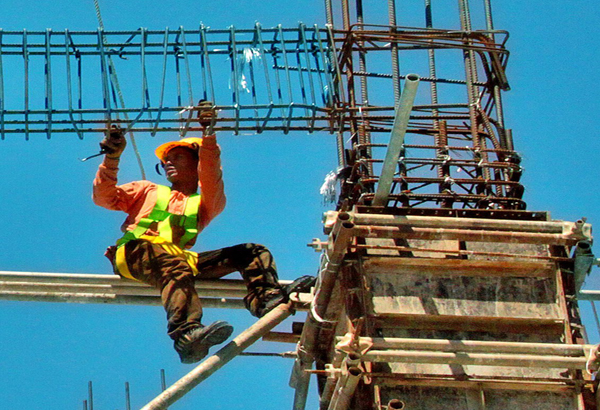PCIJ study: Access to government contracts challenging

The Philippine Center for Investigative Journalism's case study titled “Public Contracting in the Philippines: Breakthroughs and Barriers” revealed that public access to government contracts is still challenging.
MANILA, Philippines (First published, Jan. 12) — Accessing the contracts of the government remains to be challenging despite government's rhetoric on transparency.
On Thursday, the Philippine Center for Investigative Journalism launched its case study titled "Public Contracting in the Philippines: Breakthroughs and Barriers" which listed the challenges faced by the public who attempts to access information on government contracts.
PCIJ Executive Director Malou Mangahas also cited that there is huge money involved in big projects but the documents are not accessible to taxpayers. She said open contracting is not yet a norm in the country.
Investivative journalist Karol Ilagan added that every administration is tainted by controversial procurement deal.
Viviene Suerte-Cortez from Dutch development organization Hivos mentioned that 70 percent of the government expenditures are spent on public contracts while 29 percent are spent on public procurement. She said $9.5 trillion is lost to corruption every year.
"Contracting procurement, one of the most important government undertakings, is fraught with big risks too," Ilagan said at a public briefing held in Quezon City on Thursday.
The report assessed documents and data produced during the procurement plan of the Department of Public Works and Highways. The process includes planning, tender, award, contract and implementation of the infrastructure project.
The PCIJ said it chose DPWH since it received the second biggest budget annually, with P637.9 billion budget this year alone. It was a 40-percent jump from the previous allocation.
"It made good sense to focus on DPWH as infrastructure development is a key economic driver. Too, many civil works projects have long been marred by corruption and inefficiency," Ilagan said in her report.
Aside from the DPWH, the case study also looked into the consultations with the agencies involved in the procurement of public-works projects such as Government Procurement Policy Board Technical Service Office, Philippine Government Electronic Procurement System, Securities and Exchange Commission, Department of Trade and Industry, Construction Industry Authority of the Philippines, Philippine Contractors Accreditation Board, and the Commission on Audit.
Ilagan said the Bureau of Internal Revenue and Statement of Contribution and Expenditures is not covered by the research.
Findings on public contracting
The PCIJ's key findings showed that the agencies reviewed do not publish all documents related to the procurement of an infrastructure project.
It revealed that only 21 or 60 percent of the 35 documents required to be made available to the public are accessible online or can be obtained by request. The documents should conform to the Open Contracting Data Standards.
According to the study, requests would take 15 days to be granted.
While PhilGEPS does not fully align with the Open Contracting Data Standards, the PCIJ said the agency still "publishes key documents and databases on bids and awards in an open, accessible, and timely manner."
The PCIJ also learned that the weak organization of files on the agency website leads to a data dump. This lack of structure prevents the public from finding the right information.
Moreover, the Securities Exchange and Commission and the Philippine Contractors Accreditation Board limited access to information on businesses and contractors, supposedly to follow provisions of the Republic Act 10173 or the Data Privacy Act of 2012.
Despite the challenges, Mangahas said the government has lodged several transparency reforms over the years. She cited initiatives such as the executive order on freedom of information President Rodrigo Duterte released in 2016.
The PCIJ study also showed that agencies are already creating new information-management systems or upgrading present ones. Some have also launched information campaigns on contracting.
How government can be more transparent
Government agencies can make basic contracting documents available online and provide machine-readable data, the PCIJ said.
Andre Santiago of the DPWH, while agreeing with the group's findings, urged those who will be given access to public contracts to use the information with responsibility.
The PCIJ also recommended the strengthening of skills of civil society and the media in using contracting data.
- Latest
- Trending





























